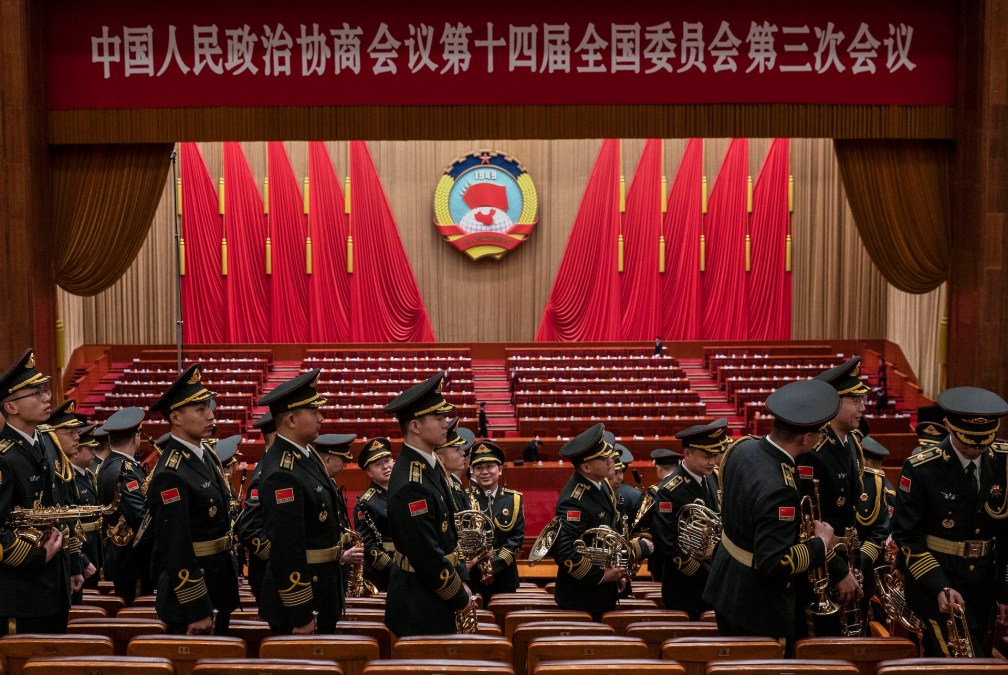Have you ever considered the implications of cyberattacks in today’s geopolitical landscape? It’s a complex topic, especially when major powers like the United States and China are involved. Recently, China accused the U.S. of exploiting a zero-day vulnerability in Microsoft software to conduct cyberattacks against Chinese military enterprises. This accusation raises important questions about cybersecurity, international relations, and the implications for technological trustworthiness. Let’s break down the recent events and understand what they mean for you and the world at large.

This image is property of cyberscoop.com.
Understanding Zero-Day Vulnerabilities
What Is a Zero-Day Vulnerability?
A zero-day vulnerability is a flaw in software that is unknown to the vendor. The term “zero-day” indicates that the software has had zero days of protection; in other words, the flaw has been unnoticed and unpatched, making it particularly attractive to hackers. These vulnerabilities can allow cybercriminals to exploit systems, steal data, or take control of crucial infrastructure with little to no warning.
Why Are Zero-Day Vulnerabilities Significant?
These vulnerabilities are crucial because they represent a gap in security that can be exploited before the software developer even issues a fix. For you, this means that systems you rely on could potentially be at risk until the developers become aware of the flaw and react. In a world increasingly dependent on technology, understanding zero-day vulnerabilities gives you insight into potential cybersecurity risks.
The Recent Accusations from China
What Did China Claim?
In early August 2025, the Cyber Security Association of China made headlines by alleging that U.S. intelligence agencies had launched cyberattacks on two military enterprises in China. These attacks reportedly used a zero-day vulnerability in Microsoft Exchange immediately, allowing the attackers to infiltrate one enterprise’s mail server for nearly a year. This allegation reflects ongoing tensions and hacking disputes between the two superpowers.
The Details of the Allegations
According to the Cyber Security Association of China, the first attack lasted from July 2022 until July 2023. U.S. agencies allegedly exploited a zero-day vulnerability in Microsoft Exchange to gain control of a critical military mail server, during which they extracted sensitive data.
In the second case, which reportedly occurred between July and November of the previous year, the U.S. is accused of exploiting vulnerabilities in file-sharing systems in a communications and satellite internet military enterprise, again stealing data during the process.

This image is property of cyberscoop.com.
The Significance of the Accusations
Escalating Cyber Hostilities
These accusations have highlighted the escalating cyber hostilities between China and the United States. Such claims are becoming more frequent as both nations point fingers at each other for cyberattacks and espionage, fueling concerns over national security and international stability.
Impact on International Relations
For you, this means that the geopolitical climate might continue to strain international partnerships. Cybersecurity can act as a double-edged sword; while on one hand it can be a source of protection, on the other it can lead to significantly increased tensions and mistrust.
The Role of Major Tech Companies
Microsoft’s Position
Just days after China’s accusations, Microsoft pointed toward Chinese hackers exploiting vulnerabilities in its own products. This circular finger-pointing reflects a broader and more concerning trend within digital security. The implications of these actions are profound, touching on issues of national interests, corporate responsibility, and ethical tech use.
The Need for Accountability
The responsibility to protect users from cyberattacks lies not just with governments, but with companies like Microsoft as well. Improvements in security must be frequent and thorough, and incidents like these push for increased transparency about vulnerabilities, their management, and how these companies intend to protect their users, such as you.

This image is property of cyberscoop.com.
The Broader Context of Cyberattacks
Historical Trends
Cyberattacks have been rising for several years, with incidents reported at an alarming rate across the globe. The ongoing competition between the United States and China, two of the world’s largest economies, only intensifies the frequency and sophistication of such attacks.
Implications for Businesses and Individuals
The effects of these cyberattacks reverberate beyond nations; they also impact individuals and businesses. For example, if a corporate infrastructure is compromised, critical data can be stolen or lost, leading to financial losses and reputational damage.
Number of Allegations
China alleged a staggering 600 foreign government-level attacks in 2024 alone, indicating a highly aggressive posture in the cyber realm. You must consider that, in an era where nearly everything relies on digital connectivity, the safety of your online information is more precarious than ever.
The Narrative of Cyber Warfare
The Definition of Cyber Warfare
Cyber warfare refers to hostile actions taken through the internet to disrupt the daily functions of a nation, with judicious attention to information technology and digital infrastructure. It’s a new frontier of war that doesn’t always take the form of bombs and bullets.
The Ethical Implications
As nations continue down this path, ethical considerations of such warfare become paramount. We must ask ourselves where the line between state-sponsored cyberattacks and criminal behavior falls and how regulations can be implemented to ensure mutual accountability.
The Way Forward
Enhancing Cybersecurity Measures
With increasing allegations and cyber hostilities, there is a pressing need for improved cybersecurity measures at both state and corporate levels. Individuals also need to take proactive steps to protect their digital lives, including regular updates, strong passwords, two-factor authentication, and awareness of phishing scams.
Fostering a Cooperative Approach
Instead of escalation, an international approach to cybersecurity could foster cooperation among nations. This means sharing information about vulnerabilities and collaborating on tech standards that enhance security and protect everyone involved.
Implications for the Future
Geopolitical Tensions
Cybersecurity issues will undoubtedly continue to shape international relations as long as nations view each other with suspicion. As an individual, being aware of these dynamics can help you comprehend global news and understand the motivations behind various countries’ activities.
Innovations in Cybersecurity
With the threats we face, the necessity of innovation in cybersecurity is more critical than ever. Startups and established companies alike are likely to invest in developing more sophisticated security products and services in the coming years.
Conclusion
The accusations made by China against the U.S. of exploiting a Microsoft zero-day vulnerability in cyberattacks illustrate a complex facet of modern international relations. As you navigate the intricacies of cybersecurity, understanding these events can help you grasp the broader implications for personal safety and national security. By staying informed and proactive, you can better protect yourself in an increasingly interconnected and digital world.
In closing, remember that in the realm of cybersecurity, knowledge is power. Understanding these events equips you to deal with the realities of living in a digital age where the existential risk from cyber threats is no longer a distant concern, but a present reality.